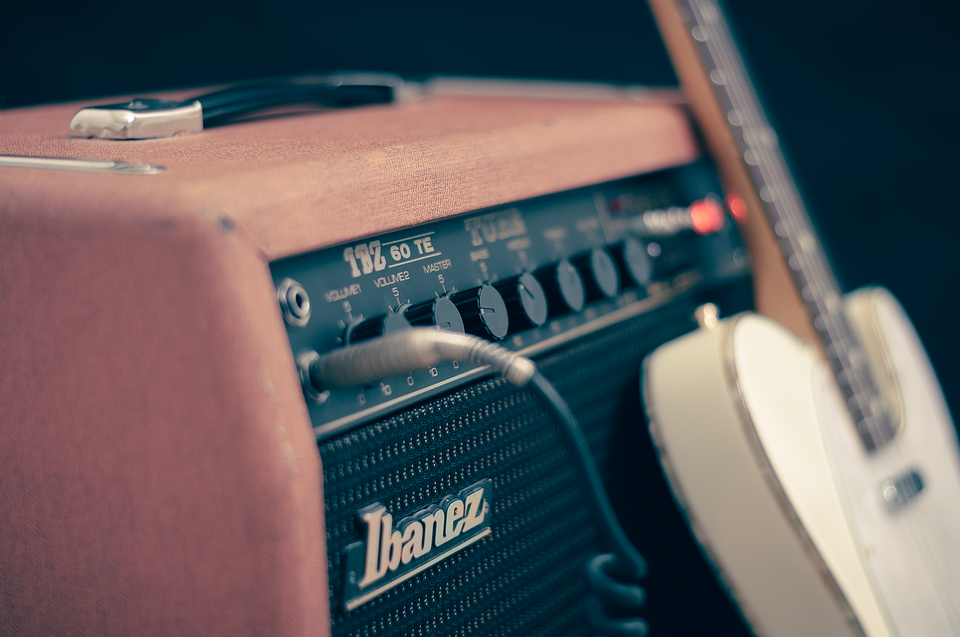- DSI CLEAR
- Theory & Practice
- Accessibility Online
- Copyright Guide
- Dos & Don'ts
- Videos on Copyright
- Usable Works
- Video Hosting Practices
- Compliance Checklist
- Checking Images for Infringement
- Creative Commons
- Public Domain & Licensing
- Exceptions & Defenses
- Copyright Statement Example
- More Copyright Resources
- Textbook Publisher Permissions
- Frequently Asked Questions
- Glossary of Copyright & Trademark Terms
- Subject Release Form
- Online Teaching
- UNT Syllabus Template
- Teaching Consultation Request
How to Use Audio
Last Updated: 09/10/2019 16:00
Initial Considerations
Whenever considering use of a third party's audio, remember the best policy is:
"When in doubt, link out!"
Linking to a reputable, legitimate third-party web site which contains the audio content is the safest thing you can do. But avoid linking directly to an audio file or to any web site which looks as though it may not have the appropriate license or copyrights to serve its content to the public. If linking is not an option, next ask yourself:
(1) Is there a clear and direct pedagogical purpose to my intended use of this audio in my lesson?
(2) Has UNT or the professor licensed/purchased a legal copy of the audio (e.g., do the UNT Libraries own a CD or digital license for the audio)?

If the answer to both of the above questions is "yes," then you might be able to rely upon one of the copyright exceptions described below in more detail. Please read through the below FAQ to determine if one of the exceptions would apply to your circumstances.
Remember, you want to use copyrighted material in such a way as to not end up in a lawsuit. The music and film industries, in particular, are highly litigious. Sure, you may prevail in court, but at what cost? It is very possible to win a court case, but be seriously financially damaged in the process, so think carefully before using copyrighted material without permission.
Frequently Asked Questions about Video
I'd like to share a portion of an audio asset (e.g., a song or opera) in my online course. How much can I legally share under one of the copyright exceptions?
- Under narrow and controlled circumstances, the TEACH Act permits a complete musical
work to be made available for listening in an online course. If your work is not
musical, then only limited portions of the work may be made available for listening.
Please refer to the TEACH Act Compliance Checklist to determine if your intended use will fulfill the requirements. Of special note,
in order to qualify you must make the content available in such a way as to prevent
downloading (i.e., "retention") of the copyrighted material by students. For example,
a link cannot be provided to a MP3 or MP4 file for download to play the musical work.
Instead, a streaming functionality must be made available which only permits the student
to play the musical work while browsing the course online. Uploading the audio asset
into a YouTube video would not prevent retention because there are free services which
permit the extraction and download of audio from YouTube videos. The streaming must
be limited to Canvas or whatever system the institution uses to serve course content
online to students.
If your intended use of the audio asset does not fit within the parameters of the TEACH Act, the next step is to carefully examine the fair use exception defense to copyright infringement to determine if your intended use would fall within its parameters.
I'd like to use a set of foreign recordings that I obtained while overseas. I don't think they're copyrighted. Is that okay?
- Nearly all creative works are copyrighted from the moment of their creation, automatically, no matter where in the world they are created. The United States has signed on to the Berne Convention, an international agreement. The core terms of this intellectual property treaty have been ratified by Congress through the passing of laws which grant foreigners copyrights in the United States which very much mirror those of U.S. Citizens. As such, all usual rules and exceptions will generally apply when dealing with an international creative work. The first step is to attempt to determine whether the work has registered its copyright, via the WATCH database, BMI, or SESAC. If all else fails, perform internet searches to see if you can determine the works' origin and copyright status. If, after conducting due diligence, you remain uncertain about the recordings' copyright status, determine whether you may apply one of the exceptions and defense to copyright infringement. As always, proceed with caution.
What about Podcasts from PBS — do I need permission to use those?
- Check to see if PBS offers a readily available licensing mechanism for such use. If so, apply their license for use. If not, determine whether one of the exceptions and defense to copyright infringement applies. If you're using the podcast for a face-to-face class, such use may be permitted via section 110(1) of the United States Copyright Act.
May I play music or a presidential speech in my course?
- For a face-to-face, on-ground course, an instructor may play an entire work if the copy of the work is legally owned/licensed and the playing of the work has a direct pedagogical purpose. For online courses, please refer to the TEACH Act and fair use exceptions to determine how much is permissible to share with students.
Additional Resources
- Search these multiple sources to Locate Usable Works — text, images, videos, audio
- Learn more about copyrights Resources